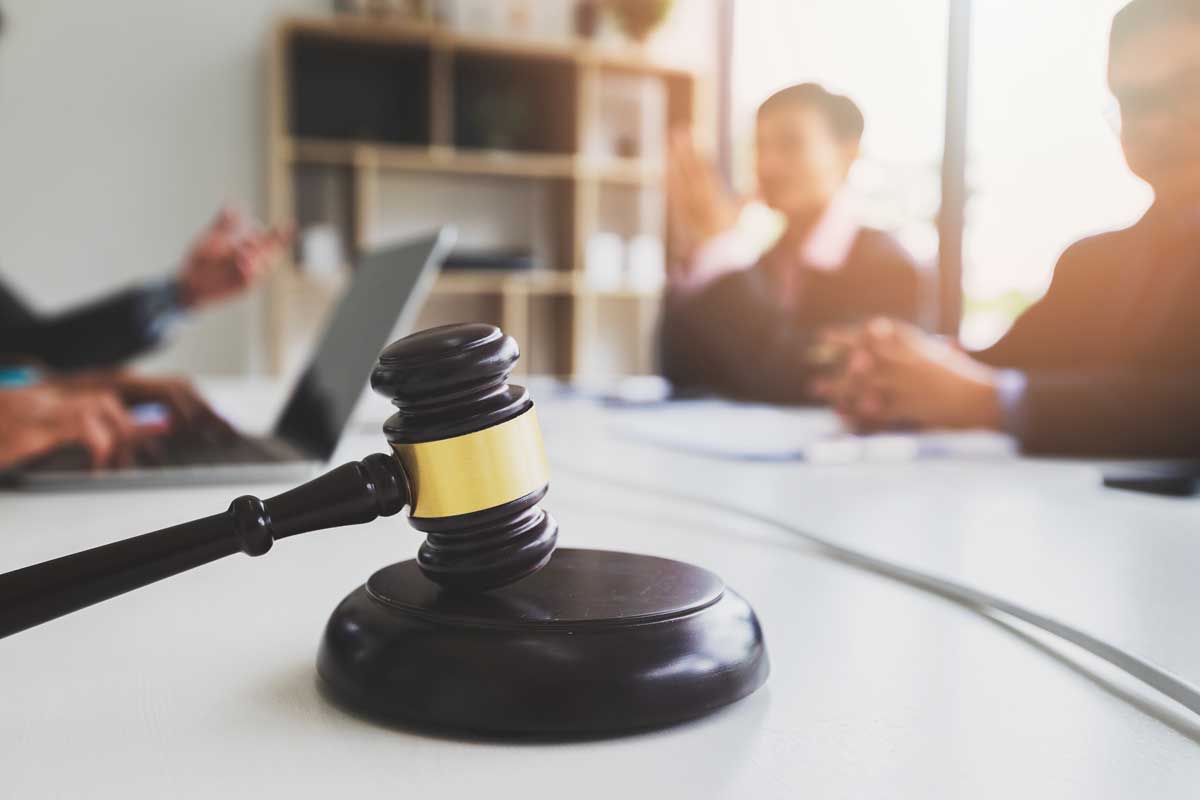Patent Litigation

Patent litigation is a complicated process, but one that is necessary in the world of intellectual property. Patents are essential for businesses to protect their inventions and ideas from being stolen by competitors.
If you’ve been accused of patent infringement or believe you have grounds to sue another party for infringing on your patents, it may be time to consult with an experienced attorney who can help guide you through the process.
What Are the Reasons for Patent Litigation?
Several reasons may necessitate patent litigation. Some of these include:
Theft of Intellectual Property
If you own patents, it’s essential to protect them from being stolen by competitors. You can do this through lawsuits or licensing agreements with other businesses.
Also, if a patent device is used in public for over a year without being formally patented, this may cause patent litigation.
Patents as an Asset
Another reason for patent litigation is that they serve as assets to companies in their business strategies and research methods. In addition, patents can be sold and licensed, which is why it’s essential to protect them from infringement.
Maintaining the Integrity and Reputation of Your Product or Invention
Patent litigation maintains the integrity and reputation of your product or invention. For example, if another company has created something very similar, you may need to sue them to ensure that consumers know the original product to deal with.
Ensuring You Receive Compensation for Damages Caused by Patent Infringement
Lastly, patent litigation ensures that companies who infringe on patents are held responsible for their actions ensuring the original owner of a patented product or idea is compensated.
For this step, a patent examiner will review the application and submit it to a three-judge panel for final approval.
What Are the Crucial Rules During Patent Litigation?
The rules of patent litigation are vital to ensuring that the case goes smoothly. For example, there may be an infringement on your patent if another business has created something similar without giving you proper credit or compensation.
During this process, both parties must present evidence and witness testimony for their claims to hold up under scrutiny during the trial in court. If a party does not agree with the court’s decision, they can appeal the ruling.
After patent litigation occurs and the patent is withheld, the court can issue a court order that the patent infringer pays damages to the original owner of the patented invention or idea.
Damages Due To Infringement Found During Patent Litigation
Suppose patent litigation occurs, and there’s an infringement. In that case, the infringer can issue damages to compensate for profit, losses, and any other factors resulting from the violation. That includes royalties and licensing fees which the infringing party must also pay.
The court could award three times the actual damages incurred by the patent owner. Both parties may also have to sign an agreement that they will not sell the infringing product.
Additional Action Resulting From Patent Litigation
If the court determines that a patent infringement has occurred, both parties can take additional action. For example, suppose an infringing party is in violation and selling products without proper licensing agreements or compensation to their original owner.
In that case, they may incur more damages and lose any defense against similar future claims brought forth by the original patent owner.
This decision could force the infringing party to stop selling their product and paying royalties and licensing fees. In some cases, this type of court order may be necessary if a patent owner’s reputation is at stake or seek additional damages that cannot be compensated for by lost profits alone.
Interpreting Patent Claims Before Patent Litigation Occurs
Remember, a patent examiner will review the application and submit it to a three-judge panel for final approval. Before this point, they are responsible for comparing your product or patented idea with similar products that may already be on the market to determine whether there is infringement.
If any similarities occur between existing patents and yours during this process, you will likely need patent litigation to happen for the claim on your idea or invention.
What Are Some Types of Damages That Can Be Awarded During Patent Litigation?
During patent litigation, there might be different types of damages that a court may award depending on what has occurred and how it impacts both parties involved. For example:
Compensatory Damages
Can get awarded to compensate for both profit losses and any other factors that may have resulted from patent infringement.
Loss of Profits
May include lost profits from infringing products and royalties and licensing fees owed on those items. However, this does not include back pay or benefits that an employee would have received if the infringing company still employed them.
Additional Damages
Can include court costs, attorney’s fees, and other factors you may have incurred due to patent infringement.
What Are the Different Types of Patent Infringement?
There are many ways to infringe on a patent for an idea depending on the product in question. For example, suppose a different company uses an idea or invention that your patent covers without giving you proper credit or compensation.
They are three main types: direct infringement, contributory infringement, and inducement to infringe, all in U.S. patent laws.
Direct Infringement
It can occur when someone directly infringes on a patented invention or idea without any license agreement with the owner allowing them to do so.
Contributory infringement
Here is when someone contributes to or helps another party commit patent infringement.
Inducement of Infringement
It can occur when the original inventor’s idea gets used by a third party. But, when this happens, both parties are responsible for damages that may have occurred due to their actions.
What Influences the Average Patent Cost?
The average patent cost can vary based on several factors, including whether or not the inventor has hired an attorney to help them navigate this process. Other things which may influence include length and complexity of associated legal work, number of claims included in your initial application, length of time it takes to reach a final decision on the patent, and whether or not you are facing an interference proceeding.
An inventor may also incur patent costs if they need to initiate a reissue application, file a request for an extension of their patent term, or pay any maintenance fees due as part of your agreement with the U.S. Patent and Trademark Office (USPTO).
There are some things you can do To help reduce what you might spend on patents, including:
- Hiring a patent attorney or agent to help navigate the process
- Filing your application electronically
- Avoid unnecessary add-ons when applying for patents.
If you’ve found yourself in the middle of patent litigation, you may be feeling overwhelmed. Fortunately for you, many resources are available to help both plaintiffs and defendants navigate this complicated process.
For those that find themselves on either side of the table during proceedings, it is essential to know your rights and how best to protect them. Therefore, seek legal counsel if needed before proceeding with any steps or making any decisions about your case—you don’t want anything getting missed.
This information will provide an overview of some fundamental concepts so that everyone can feel more confident when facing their day in court.








